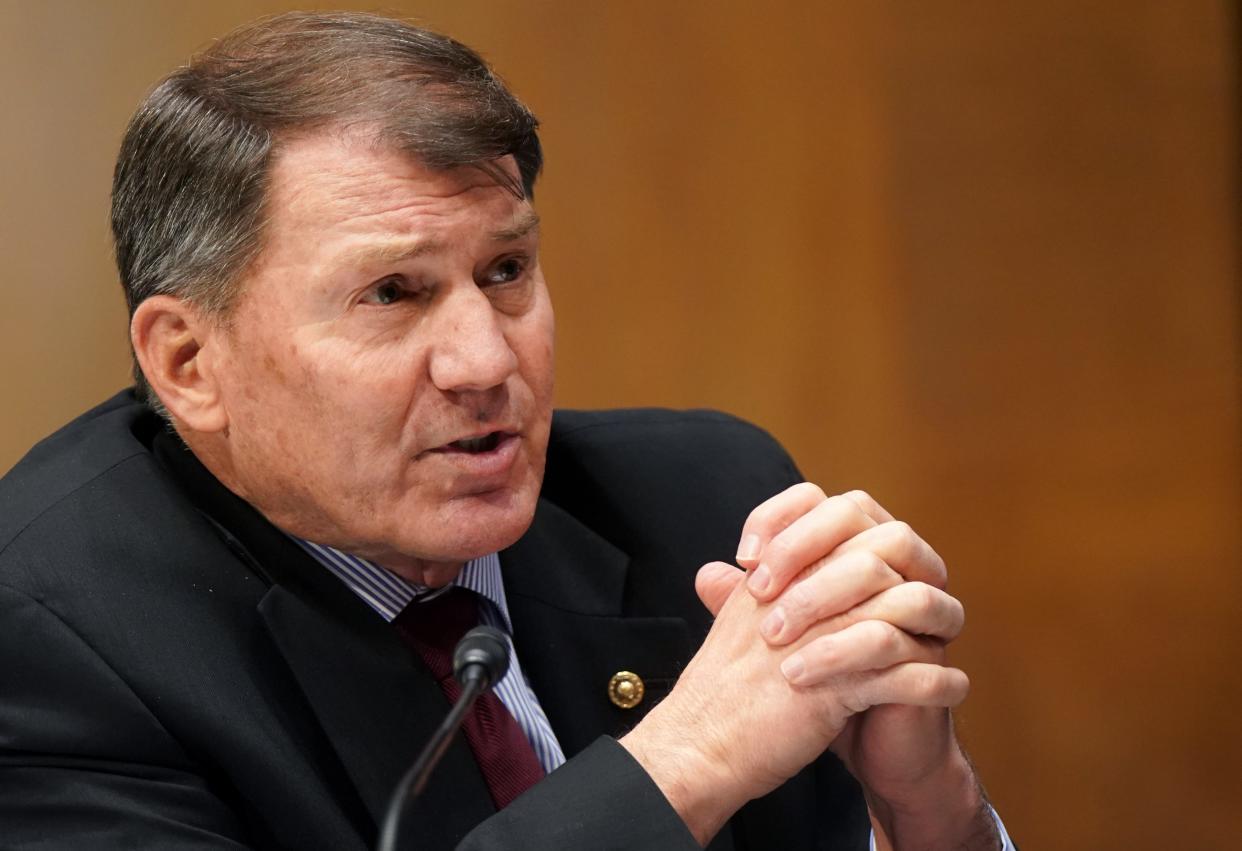Biden signs Sen. Mike Rounds' RESPECT ACT to repeal discriminatory laws targeting Native Americans

- Oops!Something went wrong.Please try again later.
For Sen. Mike Rounds, R-SD, the passage of the RESPECT Act has been seven years in the making.
Officially titled Repealing Existing Substandard Provisions Encouraging Conciliation with Tribes Act, the law eliminates 11 outdated federal laws that directly discriminated against Native Americans. Laws that stripped Native children from their families to be placed in Indian boarding schools such as the Carlisle Industrial School and laws that eliminated treaties during times of war between tribes and the U.S. government are now a thing of the past.
President Joe Biden signed the bipartisan legislation into law Tuesday.
More:Healing, awareness and reconciliation guide Dakota 38+2 Memorial Riders on final journey
Rounds told the Argus Leader in an interview Wednesday the work started in 2015 when his staff, a number of whom were tribal citizens, started researching discriminatory laws directly impacting Native Americans. They selected a number of laws they felt needed to be struck from the books, he said.
“These were the most egregious laws that we agreed should be repealed and that, in our opinion, never should have been put on the books in the first place,” Rounds said.
And while these laws have not been enforced in decades, Rounds said he found there needed to be a modicum of respect.
Since 2016, I’ve led legislation to repeal 11 outdated, discriminatory federal laws targeting Native Americans.
Today, my bill was signed into law.
Here are the eleven immoral, racist laws that will no longer be in U.S. Federal Code:— Senator Mike Rounds (@SenatorRounds) December 28, 2022
“That we did not show enough respect for the Native American peoples in this land to ever repeal these, that seemed to me to say something about the fact that it was on the backburner and nobody really cared,” Rounds said.
The two-term senator said the first iteration of the RESPECT Act in 2016 faced challenges getting out of the Senate Indian Affairs Committee, because it wasn’t considered an emergency bill, meaning a bill has a faster route through Congress.
The RESPECT Act, which had support from a variety of lawmakers including Sen. Kevin Cramer, R-ND, and Sen. Ben Ray Lujan, D-NM, was introduced in March 2021 and made it through the Senate committee and floor, where it passed unanimously into the House of Representatives.
“It's just a matter of each process takes a little bit of time and it's not always something that is going to catch the attention of enough people to actually make it work. But this one, finally, we were able to get completed,” Rounds said.
More:A snapshot of 2022: The best scenes in South Dakota through a year in photos
Native leaders across South Dakota celebrated the passage of the act.
“The RESPECT Act will ensure going forward the relationship between tribes and the federal government is mended. We know it’s impossible to change the past, but we can choose how we proceed and the RESPECT Act is a step in the right direction,” Christian Skunk, the Lower Brule Sioux Tribe Councilman, said in a release.
J. Garret Renville, Chairman-elect of the Sisseton Wahpeton Oyate added, "Historically and symbolically; it is my hope, that [the RESPECT Act] represents a path to improving the long standing inequities in the relationship and dealings between sovereign people, their nations and the United States Government.”
More importantly though, the passage of the RESPECT Act shows Rounds and his counterparts want to change the way they work with tribes and have bigger discussions about what the best policies are, Rounds said.
“Finally after seven years, a sample of the way we change the way we do business with tribes is now part of the legal codes in our federal law book,” he said.
Rounds will head back to Washington D.C. in the new year for the 118th session of Congress.
This article originally appeared on Sioux Falls Argus Leader: What to know about the RESPECT Act signed into law

